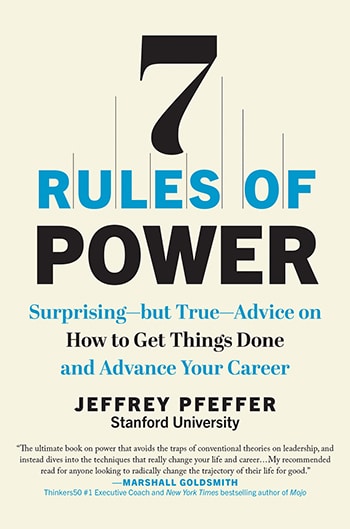Podcast Summary
Personalized approaches lead to success despite traditional misalignments: Speaking out against power imbalances and sharing personal experiences can lead to significant change
Personalized approaches, like those offered by Noom for weight loss and Blue Nile for custom-designed engagement rings, can lead to successful outcomes even when traditional options don't align with individual preferences. Meanwhile, the power dynamics in the digital age, as exemplified by the Russell Brand controversy, have intensified, making it crucial for those making accusations to be supported and heard. Zelda Perkins, a former assistant to Harvey Weinstein, bravely broke her nondisclosure agreement to share her story, leading to a wave of allegations against him and ultimately his downfall. This incident underscores the importance of speaking out and challenging power imbalances.
The Impact of Social Media on Allegations: Social media support from influential figures can significantly impact allegations' outcomes, but it also comes with risks and unpredictable consequences.
The power of social media and the support of influential figures can significantly impact the outcome of allegations, even those of a serious nature. The case of a woman who broke her NDA with Harvey Weinstein and the subsequent support of Russell Brand and Elon Musk on social media serves as an example. This event led to her being recognized as a Woman of the Year and changing the law, but it also came with risks and potential backlash. The power of social media can be a double-edged sword, and its impact on reputations and careers is unpredictable. Additionally, the case of Tucker Carlson, who was fired from Fox News but gained more views on Twitter after Elon Musk's support, further highlights this phenomenon. The power dynamics at play and the reach of social media make it essential to consider the potential consequences of speaking out or supporting someone publicly.
Media landscape shifting with alternative platforms, regulations challenged: Individuals bypassing traditional media regulations through alternative platforms, posing challenges for regulators and media industries. Regulatory bodies have power to regulate, but change is ongoing.
The media landscape is changing, and individuals like Donald Trump are using alternative platforms to reach large audiences and monetize their content, bypassing traditional regulations. This trend, which was exemplified by Trump's absence from the Republican debate but high-viewed interview on Tucker Carlson's show, poses challenges for regulators and media industries. The awareness of this issue is the first step towards addressing it. Regulatory bodies such as the FCC, Ofcom, and the EU have the power to regulate these platforms, and recent actions like YouTube demonetizing Russell Brand's content show that change may be on the horizon. However, it remains to be seen whether this will be a turning point in the fight against the monetization of controversial content. It's crucial for all stakeholders, including media industries and the public, to stay informed and engaged in the conversation to ensure a healthier and more responsible media ecosystem.
Holding the powerful accountable: Transparency and honesty are crucial for those in power to avoid downfall, while whistleblowers play a vital role in uncovering wrongdoings and driving necessary changes.
Holding the powerful accountable is crucial for bringing about change, as demonstrated by the impact of individuals like Ian Russell and Zelda Perkins in the tech industry. In the corporate world, this was highlighted in the sudden resignation of BP CEO Bernard Looney following allegations of past relationship disclosures. The press release surrounding his departure was carefully crafted, but the implications of his lack of transparency led to his downfall. This incident underscores the importance of honesty and transparency, especially for those in positions of power. Additionally, it serves as a reminder that whistleblowers play a vital role in uncovering wrongdoings and driving necessary changes.
BP's Energy Transition Strategy in Question After CEO Resignation: BP's CEO resigned due to dishonesty allegations, raising concerns about the company's leadership and strategic direction in its energy transition efforts. The company's share price underperformed compared to competitors, and the board may reconsider the strategy's direction.
The resignation of BP CEO Bernard Looney amidst allegations of dishonesty and a subsequent strategic crisis has put the company's energy transition strategy into question. Previously, Looney had focused on moving BP away from fossil fuels towards renewables. However, the strategy has not been successful, and the company's share price has underperformed compared to competitors like Shell. The board of BP may be reconsidering the strategy's direction. The crisis was triggered when a whistleblower came forward with information contradicting what Looney had told the board a year ago about past relationships with women in the company. The board, led by chairman Helge Lund, made the tough decision to exit Looney, and the share price has since recovered. Despite the challenges, it's too early to say if BP is in crisis now, but the situation has certainly raised concerns about the company's leadership and strategic direction.
BP's CEO departure: A time of change and uncertainty: The departure of BP's CEO, Bernard Looney, brings instability and potential shifts in strategic direction, with implications for share options and bonuses for key individuals.
The departure of BP's CEO, Bernard Looney, not only signifies the need for a new leader but also a potential shift in strategic direction for the company. This moment marks a period of instability, as the value of BP's shares could exceed the current price if the company were to be broken up. For Paula Reynolds and the Remco chair, a crucial decision lies ahead regarding whether to classify Looney as a 'good' or 'bad' leaver, impacting his entitlement to share options and bonuses. Despite the turmoil, the board remains committed to the climate change strategy. During times of crisis, a small group of key individuals, including the chairman and non-executives, make crucial decisions behind closed doors. While the press releases may appear impersonal, they often mask the human drama unfolding within the boardroom.
The complex relationship between the British monarchy and prime minister's office: During Boris Johnson's tenure, senior civil servants considered raising concerns with Buckingham Palace, highlighting the importance of open communication and cooperation between the monarch, their private secretary, the prime minister's private secretary, and the cabinet secretary.
The relationship between the British monarchy and the prime minister's office is more complex and constitutionally significant than many people realize. During Boris Johnson's tenure as prime minister, concerns about his conduct in government reached a boiling point among senior civil servants. These concerns were so grave that they considered raising them with Buckingham Palace, which could have potentially strained the relationship between the two entities. The concept of the "golden triangle" - the relationship between the monarch, their private secretary, the prime minister's private secretary, and the cabinet secretary - highlights the importance of open communication and cooperation between these key figures. The documentary "State of Chaos" provides a rare glimpse into the tensions that arose during this period, with former senior civil servants openly discussing their concerns and the possibility of the queen being asked to intervene. This incident underscores the importance of the unwritten British constitution and the potential consequences of its breakdown.
Trust and discretion in the relationship between 10 Downing Street and Buckingham Palace: The weekly audience between the monarch and prime minister is built on trust and discretion, with no minutes or agendas. Effective leadership and emotional intelligence are crucial for the new CEO of the Prince and Princess of Wales.
The relationship between 10 Downing Street and Buckingham Palace is built on trust and discretion, particularly surrounding the weekly audience between the monarch and the prime minister. These private conversations have no minutes or agendas, and any potential breaches of this tradition could lead to controversy. The queen and king have a reputation for staying out of controversial matters, which is essential to their working relationship. Additionally, the appointment of a CEO for the Prince and Princess of Wales, William and Kate, is an important and challenging role, with the new hire expected to be a servant leader, self-aware, and emotionally intelligent. Overall, trust, discretion, and effective leadership are key components of the dynamic between these two significant institutions in British politics.
1800 Flowers: More Than Just a Gift Shop: 1800 Flowers goes beyond selling gifts, putting love and care into every product from farmers to customers.
1800flowers.com is not just a website for buying gifts for birthdays, anniversaries, or "just because." It's a place where love and care go into every product, from the farmers and bakers to the florists and makers. The company understands that delivering a smile is important, and that's why they put their hearts into everything they do. Whether it's a bouquet of flowers, a delicious cake, or a thoughtful gift, everything from 1800 Flowers is made with love every step of the way. So, if you want to celebrate all life's special occasions with friends and family, consider checking out 1800flowers.com/acast for a wide range of high-quality, lovingly crafted items.







